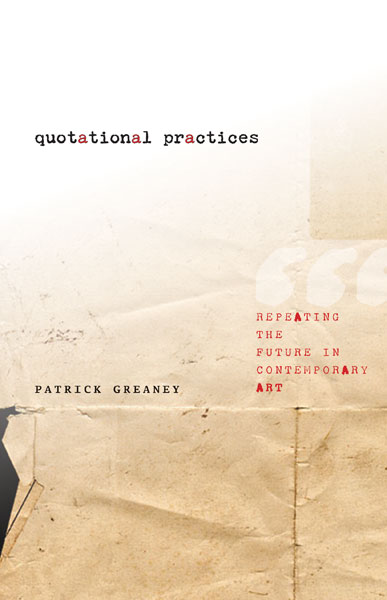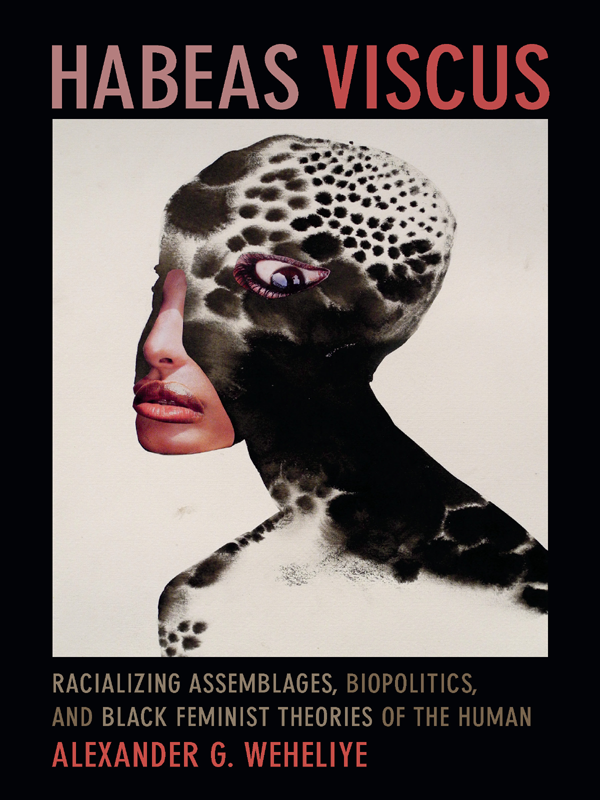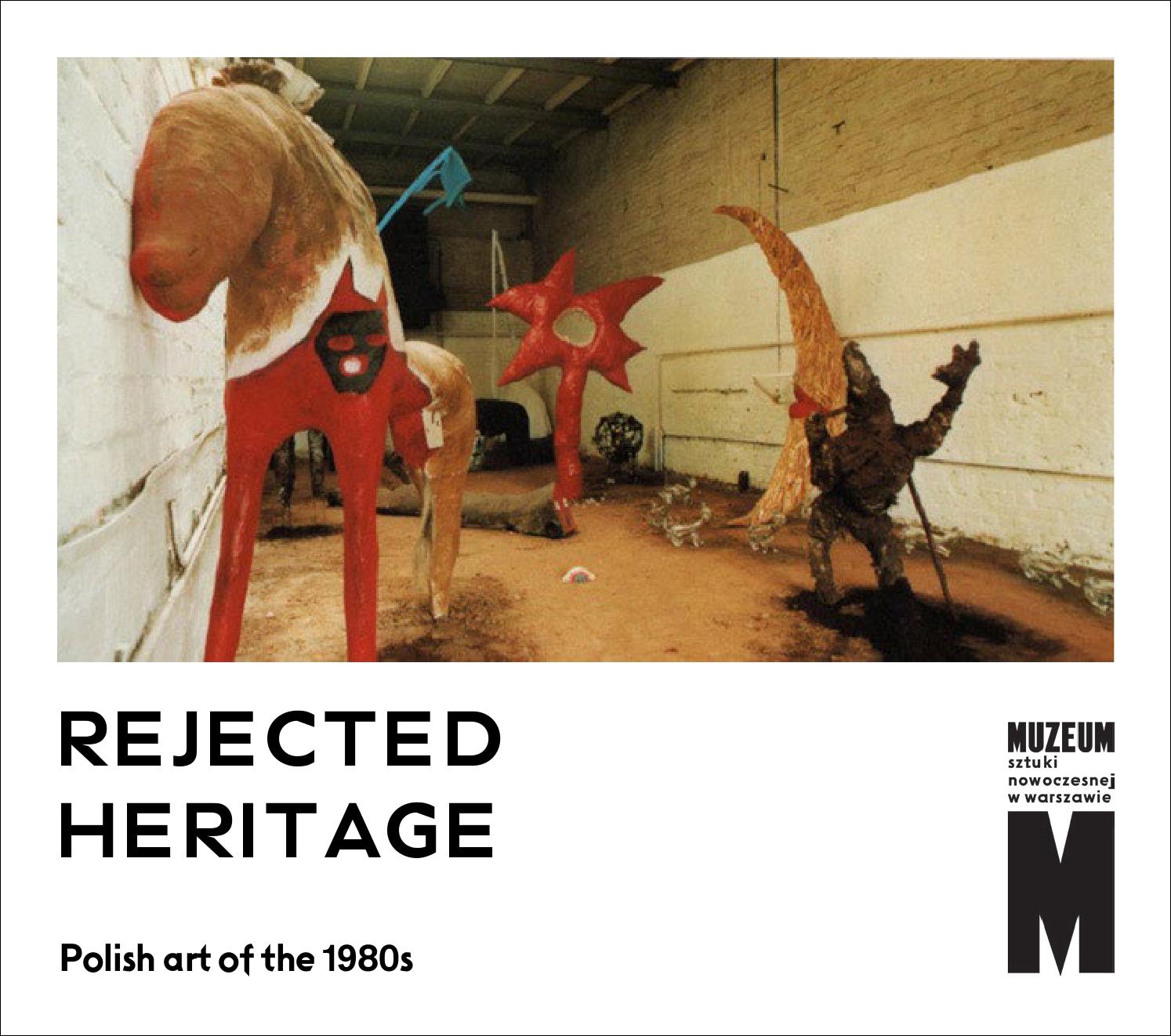Patrick Greaney: Quotational Practices: Repeating the Future in Contemporary Art (2014)
Filed under book | Tags: · appropriation, art criticism, authorship, conceptual writing, literary criticism

“Literature and art have always depended on imitation, and in the past few decades quotation and appropriation have become dominant aesthetic practices. But critical methods have not kept pace with this development. Patrick Greaney reopens the debate about quotation and appropriation, shifting away from claims about the death of the author. In interpretations of art and literature from the 1960s to the present, Quotational Practices shows how artists and writers use quotation not to undermine authorship and originality, but to answer questions at the heart of twentieth-century philosophies of history.
Greaney argues that quotation is a technique employed by art and philosophy to build ties to the past and to possible futures. By exploring quotation’s links to gender, identity, and history, he offers new approaches to works by some of the most influential modern and contemporary artists, writers, and philosophers, including Walter Benjamin, Guy Debord, Michel Foucault, Marcel Broodthaers, Glenn Ligon, Sharon Hayes, and Vanessa Place.
Ultimately, Quotational Practices reveals innovative perspectives on canonical philosophical texts as well as art and literature in a wide range of genres and mediums—from concrete poetry and the artist’s book to performance, painting, and video art.”
Publisher University of Minnesota Press, 2014
ISBN 9780816687343, 081668734X
xiv+217 pages
Reviews: Laura Guy (Visual Studies, 2015), Adam Barbu (Rev Cult Theory, 2016).
PDF (25 MB)
Comment (0)Alexander G. Weheliye: Habeas Viscus: Racializing Assemblages, Biopolitics, and Black Feminist Theories of the Human (2014)
Filed under book | Tags: · assemblage, bare life, biopolitics, black people, feminism, freedom, human, property, race, racialization, racism, slavery, theory

“Habeas Viscus focuses attention on the centrality of race to notions of the human. Alexander G. Weheliye develops a theory of ‘racializing assemblages,’ taking race as a set of sociopolitical processes that discipline humanity into full humans, not-quite-humans, and nonhumans. This disciplining, while not biological per se, frequently depends on anchoring political hierarchies in human flesh. The work of the black feminist scholars Hortense Spillers and Sylvia Wynter is vital to Weheliye’s argument. Particularly significant are their contributions to the intellectual project of black studies vis-à-vis racialization and the category of the human in western modernity. Wynter and Spillers configure black studies as an endeavor to disrupt the governing conception of humanity as synonymous with white, western man. Weheliye posits black feminist theories of modern humanity as useful correctives to the ‘bare life and biopolitics discourse’ exemplified by the works of Giorgio Agamben and Michel Foucault, which, Weheliye contends, vastly underestimate the conceptual and political significance of race in constructions of the human. Habeas Viscus reveals the pressing need to make the insights of black studies and black feminism foundational to the study of modern humanity.”
Publisher Duke University Press, Durham, 2014
ISBN 9780822356912, 0822356910
x+209 pages
Reviews: Ashon Crawley (LARB, 2015), Marianna Szczygielska (Parallax, 2015), Aditi Surie von Czechowski (Comp Stud South Asia, Africa and Middle East, 2015), Marianela Munoz and Charles Holm (Afro-Paradise, 2015), Megan H. Glick (Hypatia Rev, 2015), Shelleen Greene (Somatechnics, 2016), Amber Jamilla Musser (philoSOPHIA, 2016), Gabriela Radulescu (Allegra Lab, 2016), Ander Mendiguren Nebreda (Athenea Digital, 2017, ES).
Comment (0)Rejected Heritage: Polish Art of the 1980s (2011) [Polish, English]
Filed under book | Tags: · 1980s, art history, poland

Publication based on a conference on Polish art of the 1980s organised by Warsaw’s Museum of Modern Art.
Edited by Karol Sienkiewicz
Publisher Museum of Modern Art in Warsaw, Warsaw, 2011
189 pages
Odrzucone dziedzictwo. O sztuce polskiej lat 80. (Polish, 2011, Issuu, Video recordings from conference)
Rejected Heritage: Polish Art of the 1980s (English, 2011, HTML; Issuu)

